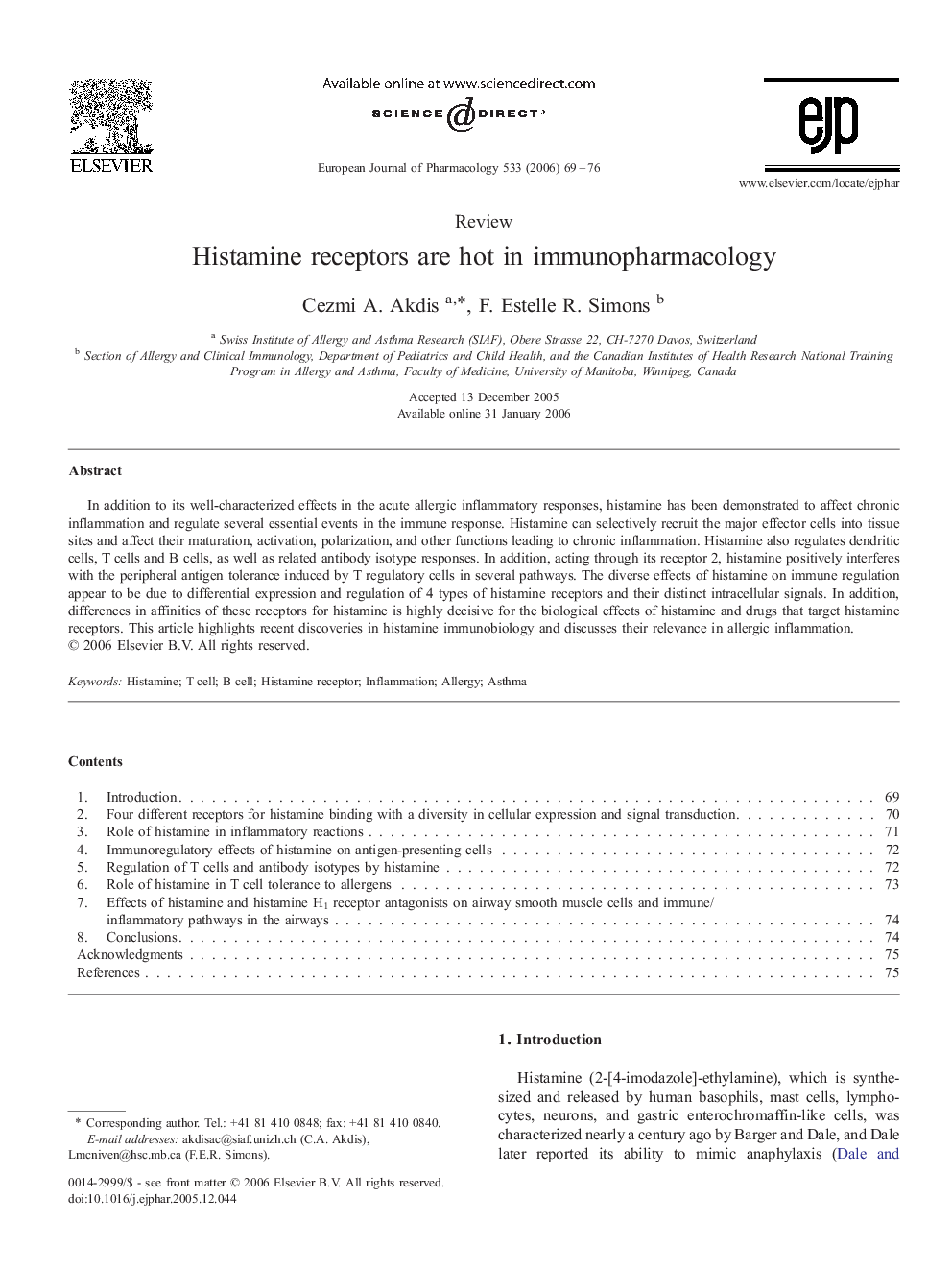| Article ID | Journal | Published Year | Pages | File Type |
|---|---|---|---|---|
| 2537340 | European Journal of Pharmacology | 2006 | 8 Pages |
In addition to its well-characterized effects in the acute allergic inflammatory responses, histamine has been demonstrated to affect chronic inflammation and regulate several essential events in the immune response. Histamine can selectively recruit the major effector cells into tissue sites and affect their maturation, activation, polarization, and other functions leading to chronic inflammation. Histamine also regulates dendritic cells, T cells and B cells, as well as related antibody isotype responses. In addition, acting through its receptor 2, histamine positively interferes with the peripheral antigen tolerance induced by T regulatory cells in several pathways. The diverse effects of histamine on immune regulation appear to be due to differential expression and regulation of 4 types of histamine receptors and their distinct intracellular signals. In addition, differences in affinities of these receptors for histamine is highly decisive for the biological effects of histamine and drugs that target histamine receptors. This article highlights recent discoveries in histamine immunobiology and discusses their relevance in allergic inflammation.
